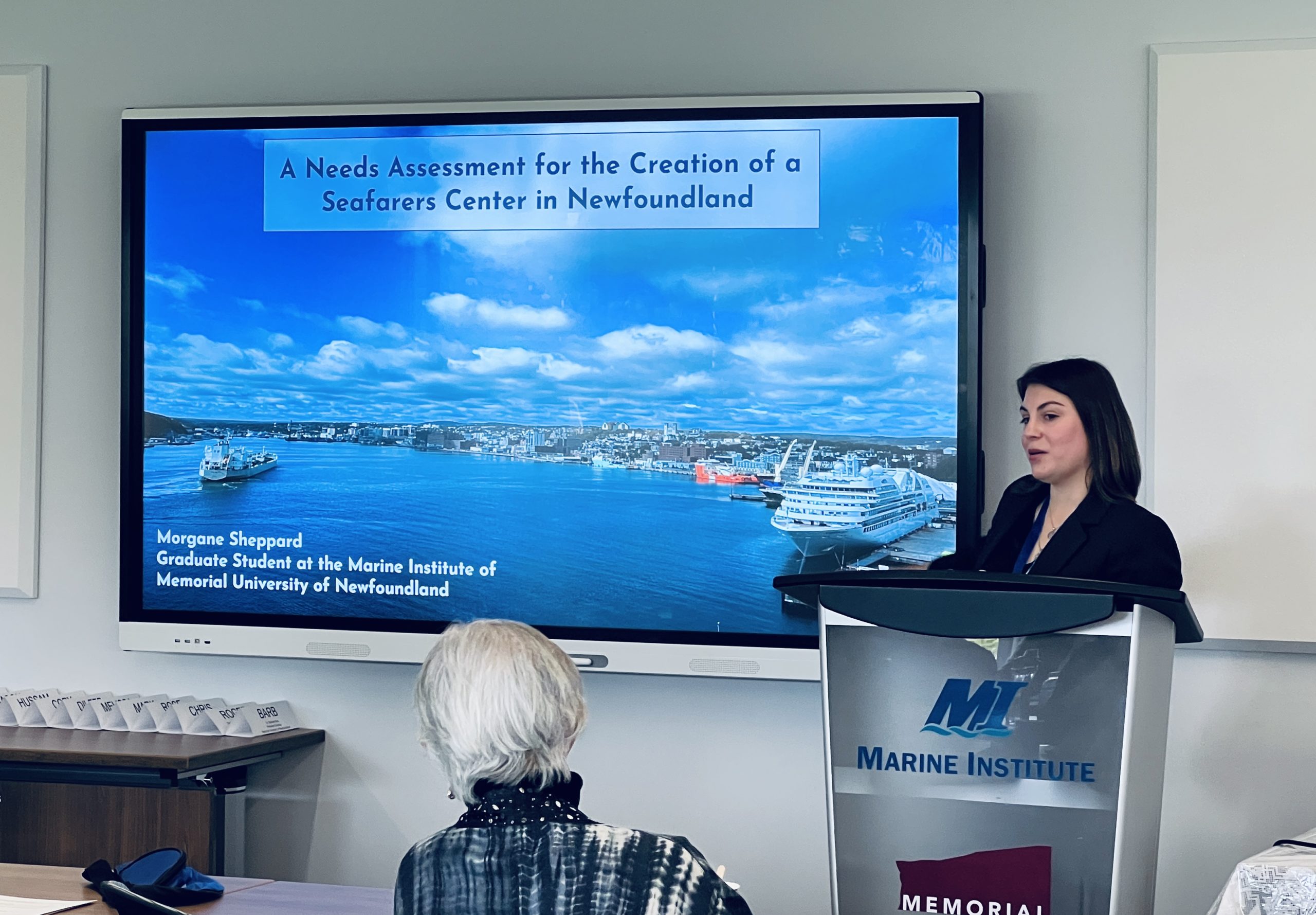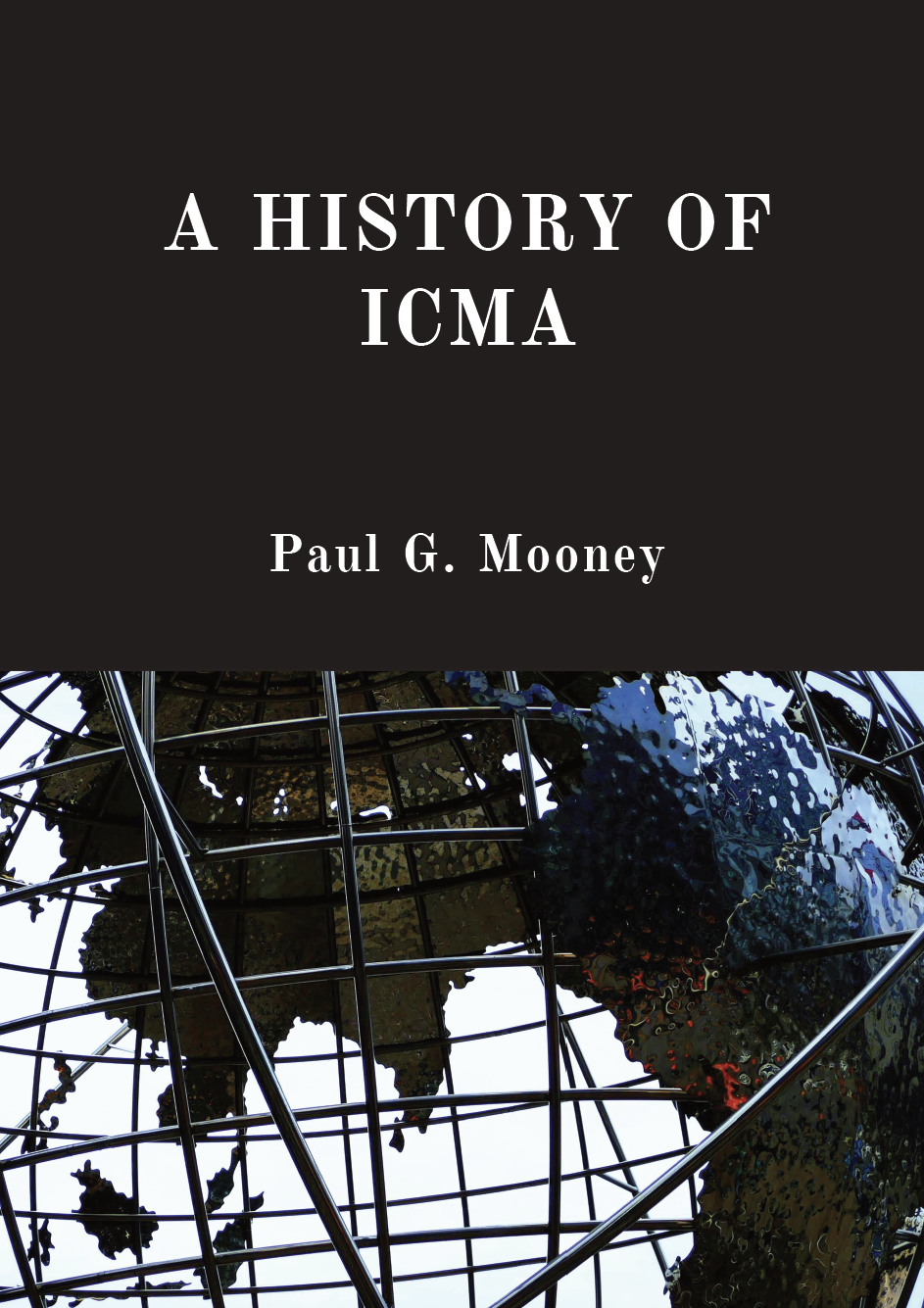by Dr. Jason Zuidema, NAMMA
On 26 September 2023, the Fisheries and Marine Institute of Memorial University hosted a seminar to mobilize community supports for a seafarers’ welfare centre in St. John’s. The goal of the workshop was to raise awareness about seafarers’ welfare and to gather those who might take part in moving a concrete project forward in Newfoundland’s principal ports. The need for a seafarers’ welfare centre in Newfoundland’s ports was indicated as a gap in a 2022 study commissioned by the Canadian National Seafarers’ Welfare Board.
The day was structured around four interactive sessions and included ample time for networking among the more than 40 registered participants representing the maritime industry, government agencies, researchers, and Canadian seafarers’ welfare non-profits.
The day opened with a welcome from Capt. Kris Drodge, Head of the School of Maritime Studies, who emphasized the importance of the day’s sessions both as a topic of current concern, but also based on his experience of being a seafarer.
In her opening remarks, Dr. Desai Shan (Memorial) stated that it is a “collective responsibility to ensure safety, health, and well-being” of seafarers.
The Rev’d Judith Alltree (Mission to Seafarers – Canada) welcomed the group and thanked her colleagues on the planning team – Dr. Shan, Cory Ochs (Memorial) and Morgane Sheppard (Memorial). Both Shan and Alltree expressed thanks to the day’s sponsors, Memorial University and the ITF Seafarers’ Trust.
After these opening remarks, Julia Murphy, Director at Marine Safety & Security at Transport Canada, emphasized that Canada is a global leader in “decent working conditions on board.” Through the pandemic Canada made “every effort to improve shore leave” and is currently concerned about the issue of fatigue for mariners. She announced that Transport Canada will soon make available online training for seafarers to help understand and manage fatigue on board. As in other ports in Canada, Transport Canada would welcome a seafarers’ welfare centre in Newfoundland.
A second session opened with remarks on the history, the outlook for a new project, and the results of a needs assessment. Dr. Jason Zuidema (NAMMA) shared the rich and storied history of seafarers’ welfare in St. John’s, from the coastal missions of the 19th century, the King George V Seamen’s Institute on Water St. in the early and mid-20th century, to the work of Catholic and Anglican charities in the later 20th century. Judith Alltree spoke about concrete next steps, including the Mission to Seafarers – Canada commitment to help encourage the first critical steps of setting up a centre. Memorial University master’s student Morgane Sheppard outlined the preliminary results of her master’s thesis that demonstrated the clear need for seafarers’ welfare support in St. John’s.
The session was rounded out by a discussion panel featuring Terri Whitelaw (Transport Canada), Vince Giannopoulos (SIU), Karl Risser (ITF), Hussam Labib (Ocean Choice International), and Mark Dolomount (Professional Fish Harvesters Certification Board). The panelists highlighted challenges of recruitment and retention of seafarers, new opportunities because of increased Internet connections onboard, work to optimize complaint procedures, the need to protect shore leave, and the importance of training for seafarers.
After an enjoyable lunchbreak that allowed participants to meet each other, the third session heard from a lineup of Memorial professors. Capt. Chris Hearn spoke from his extensive shipboard experience about the importance of shore-based seafarers’ welfare. He remarked that “generally port-based welfare is vital.” “St. John’s is a maritime community,” he stated, “the DNA is already here, so the next step is recapturing the things that used to happen here.”
In results of their study “Navigating Mental Health at Sea”, Dr Shan and Cory Ochs revealed that seafarers wish to have more mental health supports. The top reasons they discovered for which seafarers don’t get enough mental health support include that they say they prefer to manage mental health themselves, that they didn’t know where to get help, that they haven’t gotten around to it, that their job interfered, or that they had an inability to leave their ship. A seafarers’ welfare centre could potentially help share contact information or help destigmatize mental health supports.
Dr. Rose Ricciardelli likewise shared results of significant studies of mental health in public security and the Canadian Coast Guard. As she broadens her research in maritime fields, she affirmed that we can’t create solutions if we don’t have good data.
The day closed with a panel seeking practical community supports. Melissa Williams (St. John’s Port Authority), The Rev’d Roger Whalen (Anglican Cathedral of St. John the Baptist), Bishop Sam Rose (Diocese of Eastern Newfoundland and Labrador), Dcn Dileep Athaide (Stella Maris), Capt. Kris Drodge (Memorial), and Judith Alltree were all asked to speak about how their organizations might support an organization moving forward. First steps would include the formation of a port welfare committee and a further review of how resources could respond to the needs expressed in St. John’s or surrounding ports. Among the key discussions would be how to find key staff and volunteers and what kind of physical or mobile space would be required. Several other guests in the room were keen to provide support from their organizations, as the project develops.





